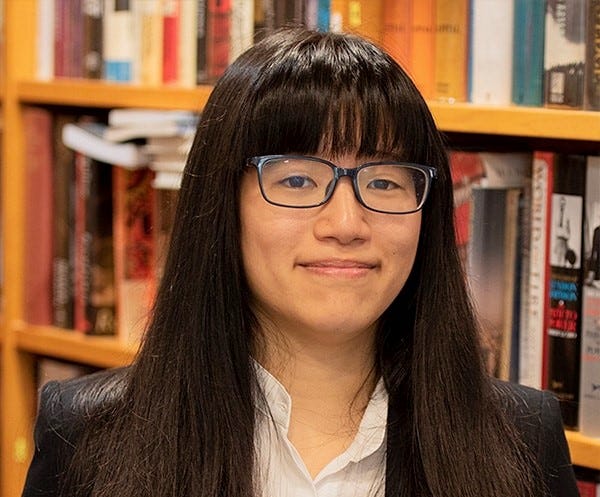Dissident Spotlight: Chow Hang-tung
Chow Hang-tung is a lawyer who has represented herself in court against the Hong Kong government, which China's oppressive regime has taken over.

On June 4, 1989, the Chinese government hunted students protesting for democratic rights through the streets starting in Tiananmen Square. While the Chinese government claimed only a couple hundred students were killed, the Red Cross estimates the death toll is closer to 2,600. Pro-democracy Chinese citizens have consistently supported efforts to find the full list of victims and force the Chinese government to reckon with its actions.
The Hong Kong Alliance in Support of Patriotic Democratic Movements of China was formed during the protests in Tiananmen Square that began weeks before the massacre and still exists today. The vice chair of the organization, Chow Hang-tung, was one of Hong Kong’s most prominent pro-democracy activists. She’s a lawyer who has represented herself in court when the Chinese government targeted her for protesting in favor of democracy.
In two trials in December 2020 and January 2021, Hang-tung was convicted for vigils she organized commemorating the victims of the Tiananmen Square massacre. She was sentenced to 12 months for the 2020 vigil and 15 months for the 2021 vigil.
In December 2022, she won an appeal to overturn her 15-month sentence. She read memoirs of families affected by the Tiananmen Square massacre and defended her right to organize these vigils. However, a retrial in February 2024 reinstated her 15-month sentence.
Memory is Dangerous for Dictators
The Chinese Communist Party has drifted far from its Marxist roots. It kept the single party but has embraced a toady capitalism that rewards loyal businessmen. Wrapping themselves in an ideology from another time and country also undermines any gripe the Chinese government has about malign foreign influence.
But covering up the Tiananmen Square massacre is one of the Chinese Communist Party’s greatest modern failures. (The Great Famine is hard to top.) Responding to calls for democratic participation with a hunt was a massive step backward for a country pulling itself out of the shadow of Maoism.
Even though China’s leader at the time, Deng Xiaoping, “bitterly regretted” the Tiananmen Square massacre, the government never reckoned with its actions. Accepting responsibility for the massacre would also mean accepting the party’s fallibility, a lethal concession for a party ruling a country searching for alternatives.
As Hang-tung serves her unjust prison sentence, she is a reminder of the power that memory holds over corrupt governments. One of the worst things a citizen of an autocratic country can do is remember how their leaders behaved.

